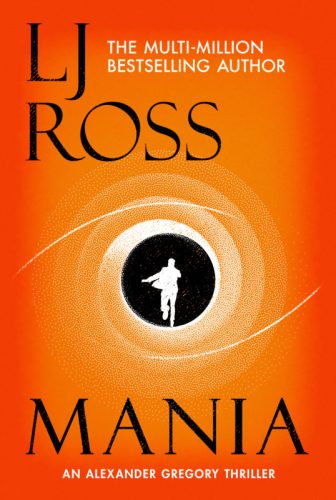
King Lear is meant to die – but the actor performing the title role isn’t.
When Sir Nigel Viliers collapses and dies on stage during the opening night of King Lear, everyone around him appears to be startled: Sir Nigel is a leading light of the London stage – so it’s even more startling when it seems his death may be due to unnatural causes. When Doctor Alexander Gregory is asked to advise the police regarding the mind of the deceased actor and any potential killer, he soon realises that all the evidence is pointing to an event from Sir Nigel’s past. Perhaps he wasn’t universally loved after all…
What’s it about?
Dr Gregory and his friend Professor Douglas agree to create two profiles, which means Gregory working closely with DCI Hope, despite being previously ill treated by her colleagues. As the body count rises, Gregory considers whether Sir Nigel had cause to do himself harm – and whether other people felt that Sir Nigel had done them harm! It seems the answers may be buried in Sir Nigel’s past at Cambridge, but after all these years, is it possible to find out the truth?
What’s it like?
Highly engaging. Well plotted. Interesting to reflect upon.
I really enjoyed the way that, as the narrative evolves, the reader is offered greater insight into certain characters and events, gradually leading to an aha! moment for Dr Gregory and the reader. It has occurred to me that, although we gain understanding of who did what, we are never shown second by second what transpired during the crucial moments that caused Sir Nigel’s death and I like that: we know the essentials and don’t need a lengthy viewing of the actual event.
Throughout the story Ross explores the value of reputation – and the devastation that the loss of it, anticipated or actual, can lead to. There was also a wonderfully appropriate focus on misdirection, which seemed highly appropriate when exploring events within the acting community!
Final thoughts
‘Mania’ is actually the fourth book in a series, but works fine as a standalone. I haven’t read the preceding three and didn’t feel like I was either lacking in information or being bored by info-dumps from previous books.
The ending introduces a large cliffhanger which does hang on ideas from a previous book (which may be why the aha! moment felt unconvincing to me – how on earth could Gregory possibly know that he knows what he thinks he knows?) and successfully creates a lot of tension. I feel like on a different day this might have annoyed me – it’s so obvious a ploy to try to yank readers into reading book five; does the author not trust the quality of their writing to make us want to keep reading their books? – but it did make perfect sense in terms of the plotting, I just didn’t think it reasonable that Dr Gregory instantly divined what he did.
Speaking of Dr Gregory, he’s a bit of a mini-Sherlock, amusingly irritating DCI Hope at one point by casually alluding to facts that she has had to use police work to discover but he had simply intuited. This is entertaining to read and means that this definitely isn’t a team-effort style mystery, but a celebration of Gregory’s profiling skills. It entertained me and I would definitely try reading another one of L. J. Ross’ Dr Gregory thrillers.